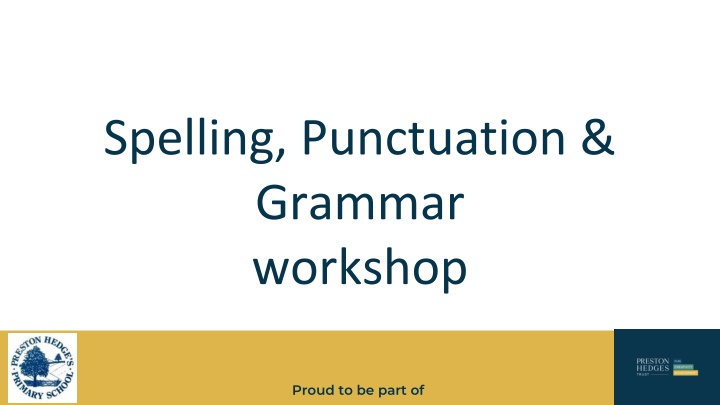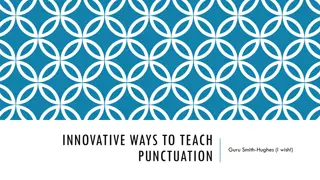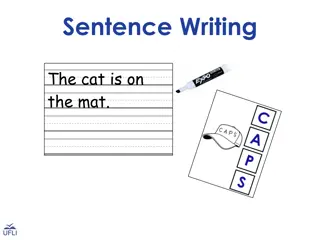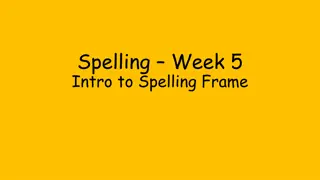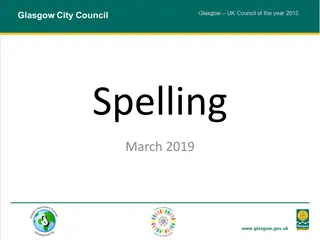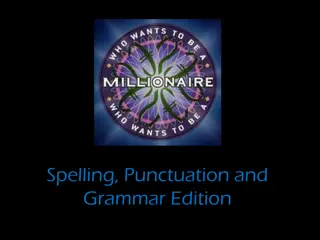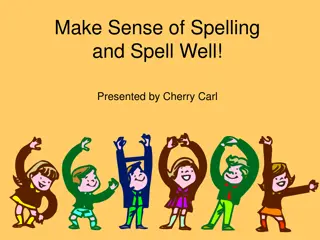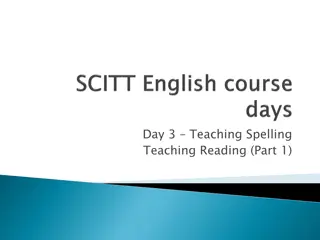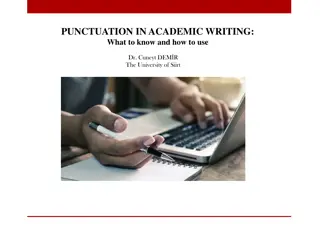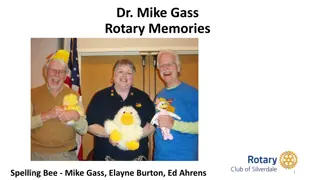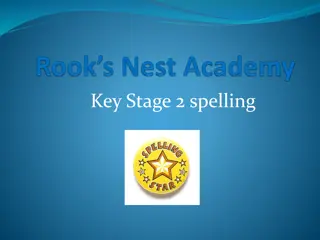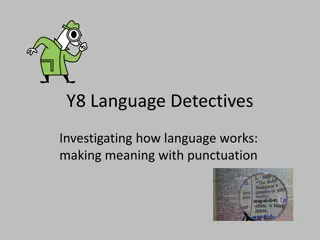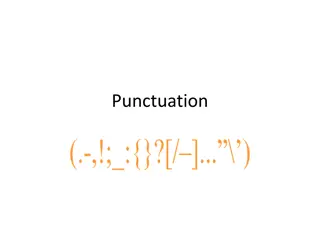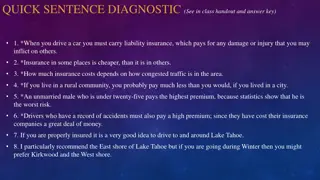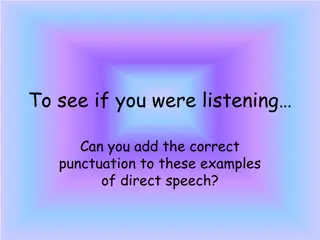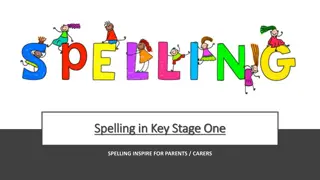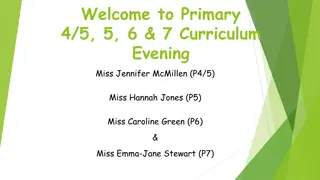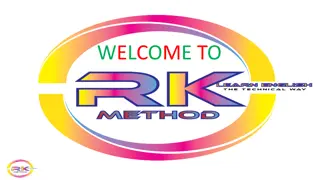Spelling, Punctuation & Grammer workshop
Enhance your writing skills with our dynamic Spelling, Punctuation, and Grammar Workshop. Join us to improve your language proficiency and gain confidence in your writing. Our expert instructors will guide you through engaging activities and practical exercises, providing you with valuable tools to communicate effectively in various contexts.
Download Presentation

Please find below an Image/Link to download the presentation.
The content on the website is provided AS IS for your information and personal use only. It may not be sold, licensed, or shared on other websites without obtaining consent from the author.If you encounter any issues during the download, it is possible that the publisher has removed the file from their server.
You are allowed to download the files provided on this website for personal or commercial use, subject to the condition that they are used lawfully. All files are the property of their respective owners.
The content on the website is provided AS IS for your information and personal use only. It may not be sold, licensed, or shared on other websites without obtaining consent from the author.
E N D
Presentation Transcript
Spelling, Punctuation & Grammar workshop Proud to be part of
Aim of the session Explain the spelling system & why the home investigation is so key Give you an overview of SPaG expectations Explain how SPaG is assessed in the school Define a couple of the trickier terminologies! Proud to be part of
Spelling It s about spelling patterns, their rules & exceptions rather than discrete spellings The aim is to give children skills that they can use based on their knowledge & understanding of how spellings work, in order to have a decent go at any spelling Proud to be part of
Eg. Patterns that make a shun sound: NEVER made by shun except in the word shun/shunned/shunning . The actual true suffixes are -ion or -ian . The clues about whether to put t, s, ss or c before comes from the last letter(s) of the root word: -tion is the most common spelling. It is used if the root word ends in t (invent) or te (hesitate) -ssion is used if the root word ends in ss or mit (omit- omission/ possess possession) -sion is used if the root word ends in d or se (comprehend comprehension/ tense - tension Exceptions: attend attention, intend intention, nation -cian is used if the root word ends in c or cs (music- musician, politics - politician Proud to be part of
How its taught in class Spelling pattern & rule introduced in class. Investigation begun Homework further investigation trying out words with the sounds & the patterns seeing which fits best - checking in a dictionary. This is key as it s their chance to try out the structures in class independently Bring spellings back into class. Share findings, make a short list of spellings from these for next week s test (not Y6) alongside unseen words Practise for homework Test & new investigation in following week s session. Proud to be part of
Weekly Quizzes / Test KS1 Listen to the word Word is repeated within a sentence for context Word repeated Children to write it independently in their book Marked by an adult Proud to be part of
Punctuation & Grammar At the start of the year, teachers refresh previous learning then start adding onto this with their year group s content. Trickiest bit the terminology Proud to be part of
How it is taught Discreet teaching sessions where a specific SPaG area is looked at Embedded within writing sessions Independent homework activity to consolidate learning Proud to be part of
Assessment Spelling, punctuation and grammar are assessed within writing to be age expected , children must be writing in correct sentences in neat, joined handwriting, with no significant spelling weaknesses Standalone 3 termly assessments for SPaG from Year 2 upwards involving spelling test, and short answer P&G questions (eg circle the noun, find an antonym, put the correct punctuation into the sentence) Proud to be part of
Example Assessment Questions Underline the adverbial phrase in this sentence: In the afternoon, the whole class went swimming. Write one suffix which can be used with all of these words: appoint agree pay Rewrite the following words as contractions with apostrophes: They have = We would = Proud to be part of
Circle the two prepositions in this sentence: There are two good toyshops in my town and one of them is beside my house. Insert the correct relative pronoun to fill the gap in this sentence: Scotland, __________ my mother was born, is our favourite place to go on holiday. Underline the subordinate clause in this sentence While you were sleeping, I made you a lovely breakfast Proud to be part of
Some of the trickier grammar elements .. Proud to be part of
Perfect form Can either be present perfect, past perfect or either combination with progressive (meaning action in process) Uses has/had/ have (dependent upon whether it s past or present Eg She has played the piano (present perfect) She has been playing the piano (present perfect progressive) She had played the piano (past perfect) She had been playing the piano (past perfect progressive) Proud to be part of
Progressive form Alongside the perfect , the progressive form can also be a simple past or present to signify events in process : Eg. Leah is dancing (present progressive) He was working (past progressive) Proud to be part of
Punctuation An important element within writing, but also within SPaG sessions. Children need to be able to identify, understand why and when it is used and then implement in their own word. This is progressive from EYFS to Year 6 Proud to be part of
Any questions? Proud to be part of
